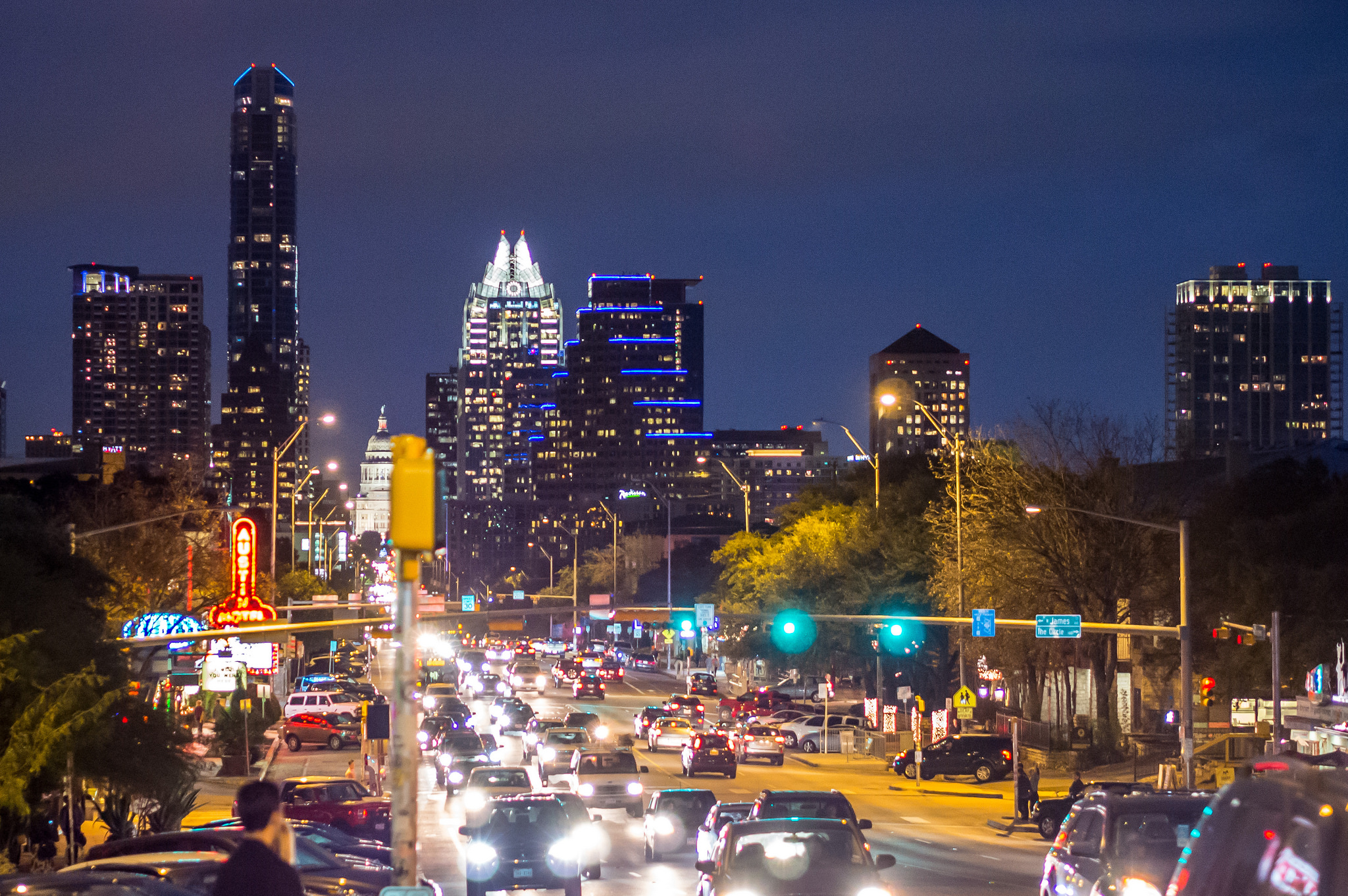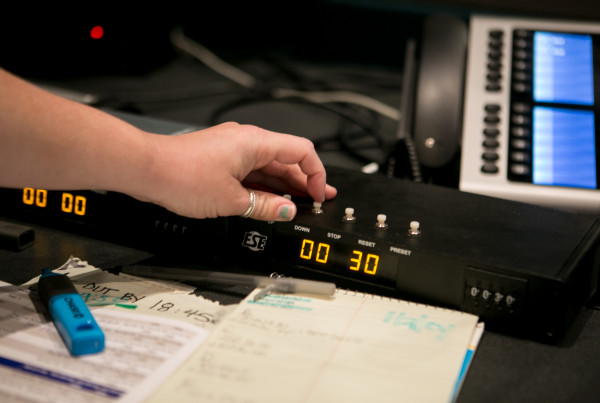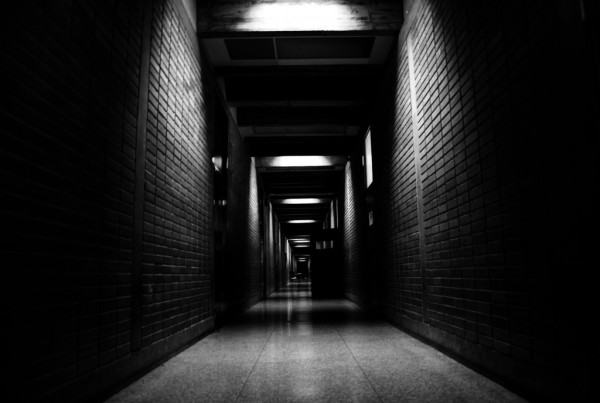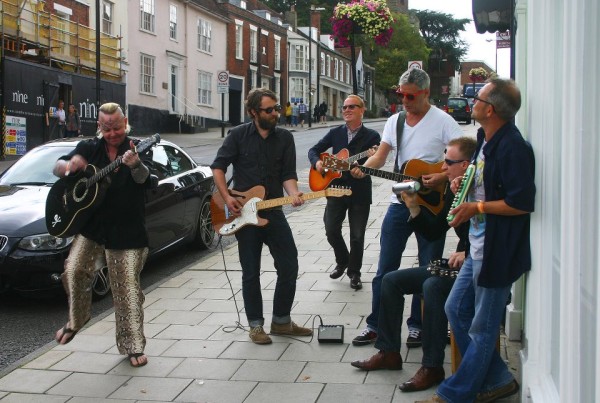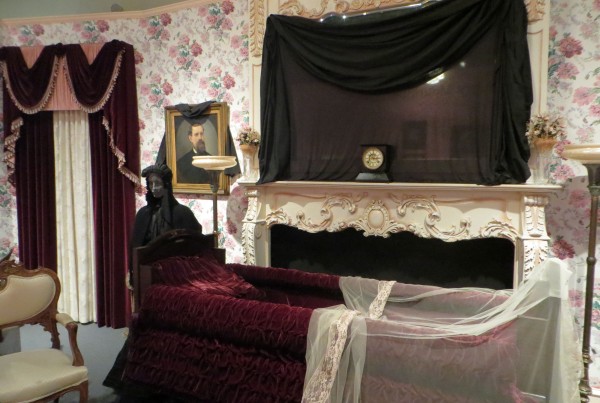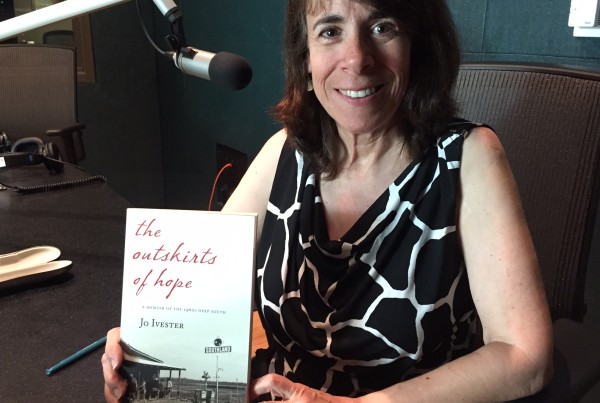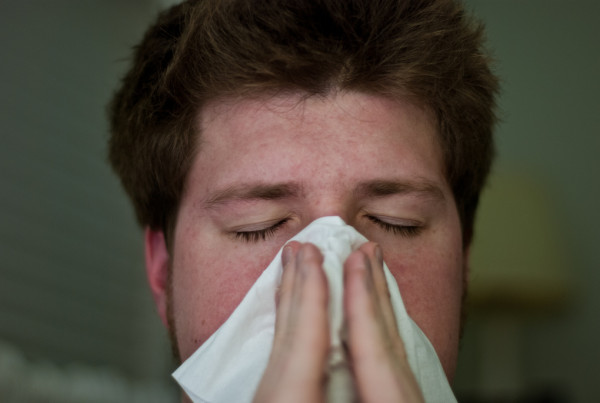This story originally appeared on Medium.
I was born in Texas, but I live in Austin.
My wife and I moved to Austin in June of 1999. It was a roundabout journey; I was born in El Paso, Texas but grew up in southern New Mexico, and my wife was born and raised in southern New Mexico. I’d lived briefly in northern California, and my wife and I both lived in Worcester, Massachusetts while she completed her undergraduate degree. She pursued and was awarded her PhD in Austin, at the University of Texas.
I wasn’t entirely unfamiliar with the city. I had friends from childhood and from high school who moved to Austin. In high school and in my early college years it was a bit of a thing to move to Austin and be in a band, make your art, or get a degree, or just drop out, and generally soak in the Austin vibe. In the town we lived in, you didn’t aspire to make it in New York or San Francisco or Los Angeles. You wanted magic. You moved to Austin.
Last week while wandering around the shiny, perpetually under construction glassine facade of the new Austin downtown, I was struck by the conclusion to a thought that started back in 1999. Back then, when my wife and I first moved to Austin, the city was right on the edge of a wave that had started rolling just after the last big bust, a bust driven by the things that make Texas economies go bust. By the time we arrived and moved in with friends, real estate was relatively cheap, rents were OK, and the 50,000+ students of the University of Texas seemed to drive both the economy and the culture.
I’d only really heard anything non-historical about Austin (outside of the Austin City Limits TV show) back in the late 80’s and early 90’s, when friends in bands moved to the city from home in Las Cruces, NM. They were met with a depressed economy, cheap clapboard houses and shoebox 70s era apartments, and a dense, thriving culture of music and art that seemed to have little aspiration to move anywhere outside of Austin. Things were just fine, but, and this is key, it had been much cooler, much more hip, some years before. The very first thing I heard about Austin: it was so much better ten years ago.
This is a thing you’ll hear from just about anyone who has lived here for longer than a few years: it was so much better here five or ten or twenty years before you got here, whenever that was. I have friends that heard this when they got here in the 70’s, in the 80’s, and the 90’s. This is a town that looks back on its past with a sweet, sad longing and a lot of pride. The music is the key; the venues, mostly slapped together and impermanent to begin with, were held together by cheap beer, cheap weed, and legendary performances. The nature of performance as a fleeting moment, a collection of emotion formed and spent in that instant, created a base layer that was impossible to build on. There’s nothing permanent about the sort of emotion that the right combination of sound, people, and substances can evoke. It is magic because it is temporary.
The Austin my wife and I moved to was swampy, overly warm, very green, and filled with decay punctuated by a few new developments. Things were in states of neglect I’d seen in some other places in the deep south. It was a comfortable, broken-in town, ruts and grooves marking the common paths to and from points of interest. There weren’t many; for a town with a thriving culture, it had little in the sense of location; there wasn’t a decent art museum, there wasn’t a decent performance hall or venue for large performances. There wasn’t much of a restaurant scene. There was cheap alcohol and cheap dingy bars along 6th street, and there was a world-class university, and not much more. Being a Texan, I had notions about my state that Austin didn’t fit, despite it being the capital.
I understood the underpinnings of the state, but could not grasp Austin. On one hand, it’s a drinking town, a college town, a party town. On the other, it is the seat of the state government, and it is ringed and shot through with trails and paths and greenbelts. It’s the sort of place where recovery from the previous night is accomplished over strong coffee, a breakfast taco, and a walk through the steam of muggy air around Town Lake. The town has a laughing, permanent hangover. Breakfast beer or Bloody Mary or wake and bake, get to class or to work or to a studio or a couch, burn through a foggy sauna of whatever it is you do, then go drinking again.
At the time, that felt perfectly OK; there were small gatherings, large parties, collections of people rather than places. Still, this was changing rapidly when we arrived.
Some time before we moved here, the Austin “thing”…the scene, the culture which was so myopically focused on a mystical past…lost sight of the changes happening to the structure of the city. Physically, things had always been changing, but in the last 15 years that change has itself changed. The nature of it, the causes for it, the reasoning behind it all changed. While Texas in particular and mankind in general have long been susceptible to material interests and the capricious nature of capitalism, Austin was largely populated by an academic institution and a state government, both tending to create stable, unhurried, stagnant economies. Much of the culture was squeezed from that solid gray background of state institution by necessity. However, just post-tech-boom, Austin started finding ways to capitalize on the survivors of the technology economy while gathering enough shiny new toys to attract new, young money. They did so by marketing the underlying magic that was old Austin.
Somewhere in the center of the city of Austin, the Real Austin Experience(tm) (as marketed by whomever it is that makes cash from condos, festivals, Formula One, and the leisure class) came to be. I was there when that New Austin was born, forming like a crystal on the bones of that thing we all just missed. I did nothing to prevent it, caught in the combination of cynicism (as perfected by my generation) and some sort of lazy inertia learned from the locals: whatever happens, it happens. Man.
It took a short while, and soon Austin became the hippest city in Texas, and one of the hippest cities in all of the Americas. Festivals (including some that predated the newest New Austin) became year ‘round draws, cash machines that brought visits from lots of cash rich, culture poor folks who, on seeing the land of breakfast tacos and cheap beer, wanted to be a part of the magic they felt in that moment. They saw a small city permanently caught in that mystical intoxicated 1am, right before the bars close, right when the music is at its peak, a moment steeped in nostalgia for being in your twenties and filled with promise.
Once they caught sight of that, those visitors became residents as fast as they could. This happens daily, at a rate that is reported to be anywhere from 120 to 150 new people a day. Austin attracts people and their cash, attracts employers, and attracts development.
The atmosphere in Austin is thick, literally, and is thick, figuratively; dense with nostalgia steaming off the heads and hearts of a citizenry addicted to some ideal that they never quite got to see, some youthful thing they have always pined for, some lost American sense of pride in an organic culture, a spontaneous collision of passions and a place to play them out without repercussion. Austin is fertile ground, and like any fertile ground it is fueled by decay. There’s a slow southern thing here, as inevitable as kudzu, a sweet, long lasting journey into the next thing, always walking backward, staring at the past. Like many places in the south, it is hopelessly mired in race and religion. Like many places in Texas, it is hopeful and bustling, delusional at times, thriving at other times. The front edge of that wave of success drags a swamp along behind it.
Nostalgia is fickle. You can’t build a house with a feeling. Money, though, can do wonders for making things look the part, and the more money, the better the illusion. Restaurants, museums, performance venues, condos and high rises, ongoing massive outlays of capital create a prop upon which your emotions can be foisted. They’re all being slapped into place faster and faster. The latest wave of development crashed into a culture that was unable and unwilling to resist. The old Austin, the one that you had always just missed? It’d spent all of its magic propping itself up in the face of an empty post-boom Texas town. Old venues, never well-made or permanent to begin with, are now parking or condos, and though you’ll hear people lamenting the loss of those places, it was never about the buildings. Not back then, anyway. It was about the magic of the moment.
These days, it’s about the buildings, it’s about the facade. Ideas that worked well in the funky old Austin have become franchises, poor simulations of the actual institutions. You’ve been to Whole Foods (which started as a hippie health food store in Austin). That’s the goal of new Austin.
Back in 1999, I looked at the inside of a very Austin bookstore, and I thought to myself, this is the sort of thing that can’t be sustained. It’s too damned good, and part of what makes it so damned good is, it is temporary. Back then, I always heard how it was so much cooler here X years ago, but that was always said with a smile. No bitterness, just a sweet sadness at the loss of it, because there wasn’t a thing actually lost. Somewhere in there was the assumption that, hey, it may have been cool back then, but it’ll be cool again. Just you wait. It’ll be really cool again, because we’re all here. It was that sort of town, it was filled with those sorts of people.
Now, though? I will tell you, it wasn’t cooler, or hipper, or better any number of years ago. What it was, was capable of producing a very specific kind of magic, something that is really difficult to describe in a way that you’d sit through. The sort of magic that, because it can’t be easily described, can’t be produced on demand or marketed at all. The sort of magic that I just don’t see in this town in any volume any longer, as it is being replaced by simulations and bad attempts at defining what It was. I suspect we’ll see whole franchises of Austin go up in failed cities in the Midwest soon, complete with Whole Foods, Alamo Drafthouse, Torchy’s Tacos, a bunch of themed post-hipster bars, a moon tower or two, and a muddy trench posing as Lady Bird (nee Town) Lake.
In the small span of time my wife and I have lived here, we’ve witnessed the New Austin being born in fits and starts, and we’ve seen the neglected parts of that system fall further into disrepair and chaos. Traffic is unexpected for a city this size; Austin pretty consistently ranks in “worst traffic” lists, and while someone sitting in traffic in Washington DC or Manhattan can’t fathom how it is our traffic is worse, it is partly due to being worse by design, or lack thereof. We have very few major north-south roads. We have almost no major east-west roads. That’s a problem. It is a problem compounded by a train track, lakes and rivers, and a geology that seems designed to slow road development. This city was not designed per se but was patched together in a frantic quilt of reaction to a combination of physical limitations, economic issues, and exploding population. There is no convenient way to get from point A to point B in Austin unless point B is a few blocks away and it is less than 100 degrees.
Traffic is a worry, and one that can in theory be engineered. Drought is a worry, and it can’t be engineered. Austin will face drastic water shortages in coming years (as will most of the US, but Texas specifically has a whole lot to worry about). There is no solution to this. Unfortunately, as the climate changes and our heat waves and droughts become more extreme, more lengthy, and more taxing, Austin’s prodigious and unchecked growth in the previous years will prove to be its undoing.
This being Austin, though, there is a certain “what happens, happens” attitude. And while the natives, the locals who were born here, tend to be very conservation oriented (they want to insure that the future looks at least something like the past), the thousands of people moving here every week may not have the same long-term investment of care.
Austin is a neat little city. It has a lot of very cool little hip spots, and if you like music and alcohol, this is a town that does both in huge quantity. If you like really expensive hobbies, Formula 1 is available, as is high end shopping and a Ferrari dealership. If you like really expensive food, there’s some mind-blowing restaurants (and, to be fair, a lot of not-as-expensive places that are pretty great). If you like traffic, heat, humidity, drought, and mosquitoes, it’s a great town for those things as well. It’s one of the most expensive places to own property due to the crazy high property taxes. But, there is stuff to do. Breakfast tacos and brunch to be had. In the post-hipster world, there’s less elaborate facial hair but more carefully crafted cocktails. And at any given moment, there are a whole lot of people complaining about the loss of culture, the heat, the traffic, and the expense.
We’re part of the problem, us complainers. It’s time to leave. Time to move on to the next thing, whatever that is. For my wife and I, we’re moving without any sense of irony to another city that complains about newcomers, traffic, expense, and loss of culture. Because really, it’s all the places. It’s not just Austin, it’s every city that has an identity. Search and replace the word Austin with Brooklyn, Portland, Seattle, Denver, certain districts of certain cities (New Orleans, LA, San Francisco), etc. You’ll find the same laments, the same issues, the same complaints. At some point, you just have to live where you can, and bring what you can to the place you live. My wife and I are trying to find a place that doesn’t have ten month summers, impending water riots, and exotic tropical disease. Plus it would be nice to be back in the west again; this place is just too green.
In the end, Austin was pretty cool. It’s just…man…you really should have been here twenty years ago. It was so much better back then.
Jason Norman is a recently unemployed short-term resident of Austin. He can be reached at blixco at gmail.


